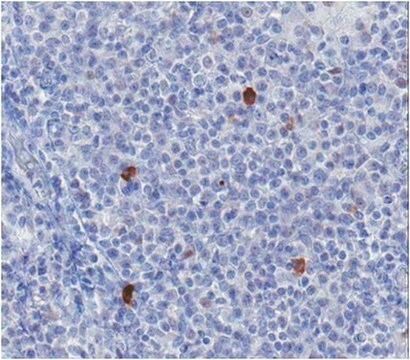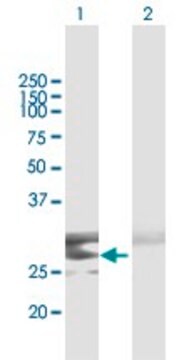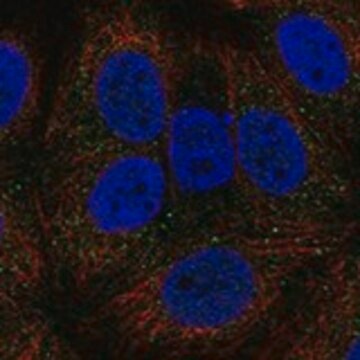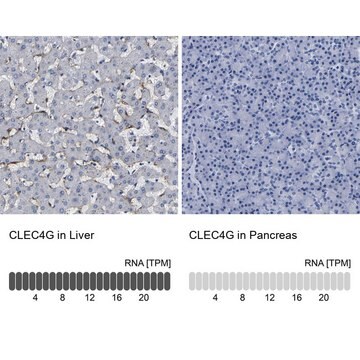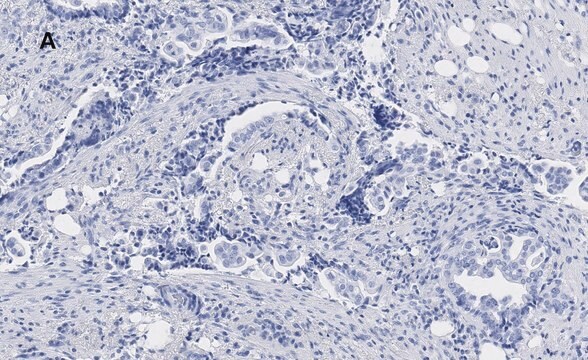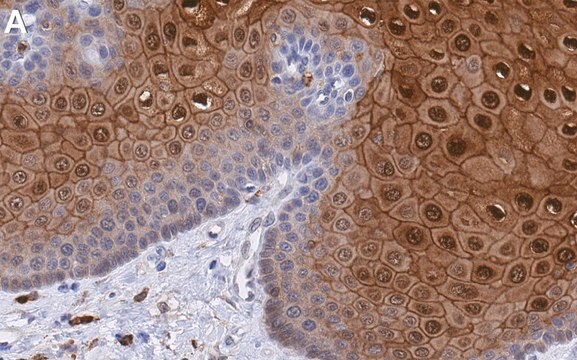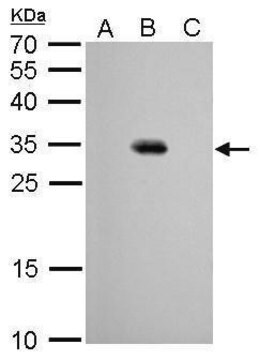SAB2501252
Anti-CLEC4C antibody produced in goat
affinity isolated antibody, buffered aqueous solution
Sinónimos:
Anti-BDCA2, Anti-CD303, Anti-CLECSF11, Anti-CLECSF7, C-type lectin domain family 4, member C
About This Item
WB
western blot: suitable
Productos recomendados
origen biológico
goat
Nivel de calidad
conjugado
unconjugated
forma del anticuerpo
affinity isolated antibody
tipo de anticuerpo
primary antibodies
clon
polyclonal
Formulario
buffered aqueous solution
reactividad de especies
human
técnicas
indirect ELISA: suitable
western blot: suitable
Nº de acceso UniProt
Condiciones de envío
dry ice
temp. de almacenamiento
−20°C
modificación del objetivo postraduccional
unmodified
Información sobre el gen
human ... CLEC4C(170482)
Descripción general
Inmunógeno
Acciones bioquímicas o fisiológicas
Características y beneficios
Forma física
Cláusula de descargo de responsabilidad
¿No encuentra el producto adecuado?
Pruebe nuestro Herramienta de selección de productos.
Código de clase de almacenamiento
12 - Non Combustible Liquids
Clase de riesgo para el agua (WGK)
WGK 2
Punto de inflamabilidad (°F)
Not applicable
Punto de inflamabilidad (°C)
Not applicable
Elija entre una de las versiones más recientes:
Certificados de análisis (COA)
¿No ve la versión correcta?
Si necesita una versión concreta, puede buscar un certificado específico por el número de lote.
¿Ya tiene este producto?
Encuentre la documentación para los productos que ha comprado recientemente en la Biblioteca de documentos.
Nuestro equipo de científicos tiene experiencia en todas las áreas de investigación: Ciencias de la vida, Ciencia de los materiales, Síntesis química, Cromatografía, Analítica y muchas otras.
Póngase en contacto con el Servicio técnico